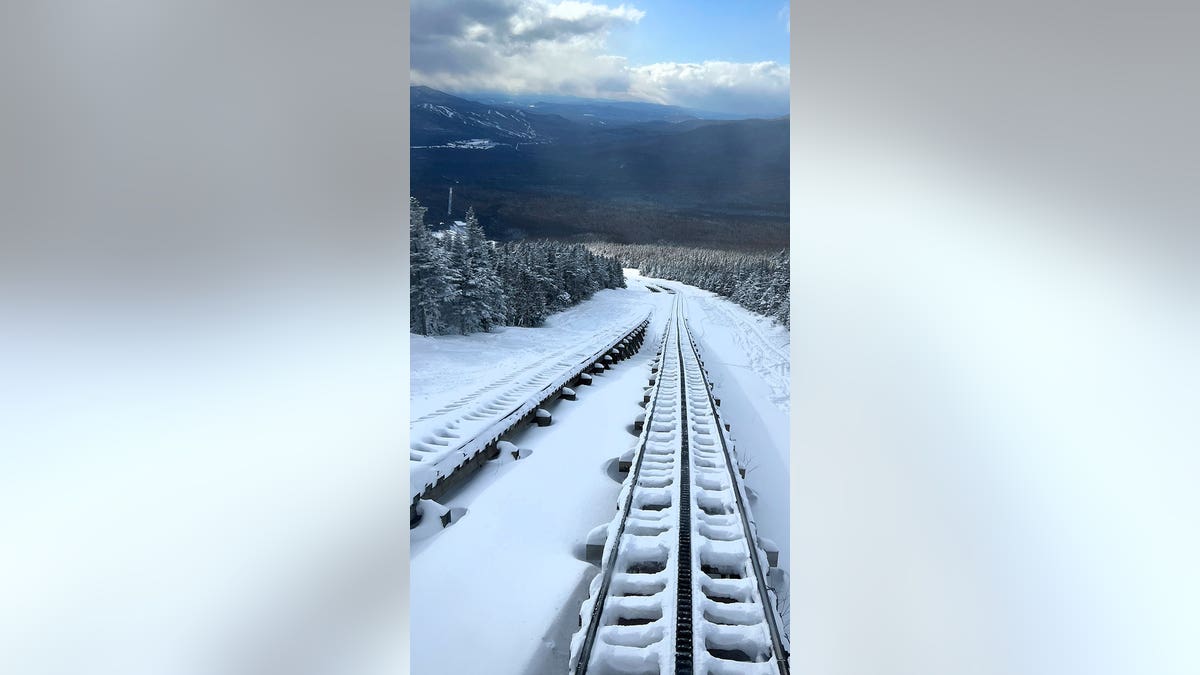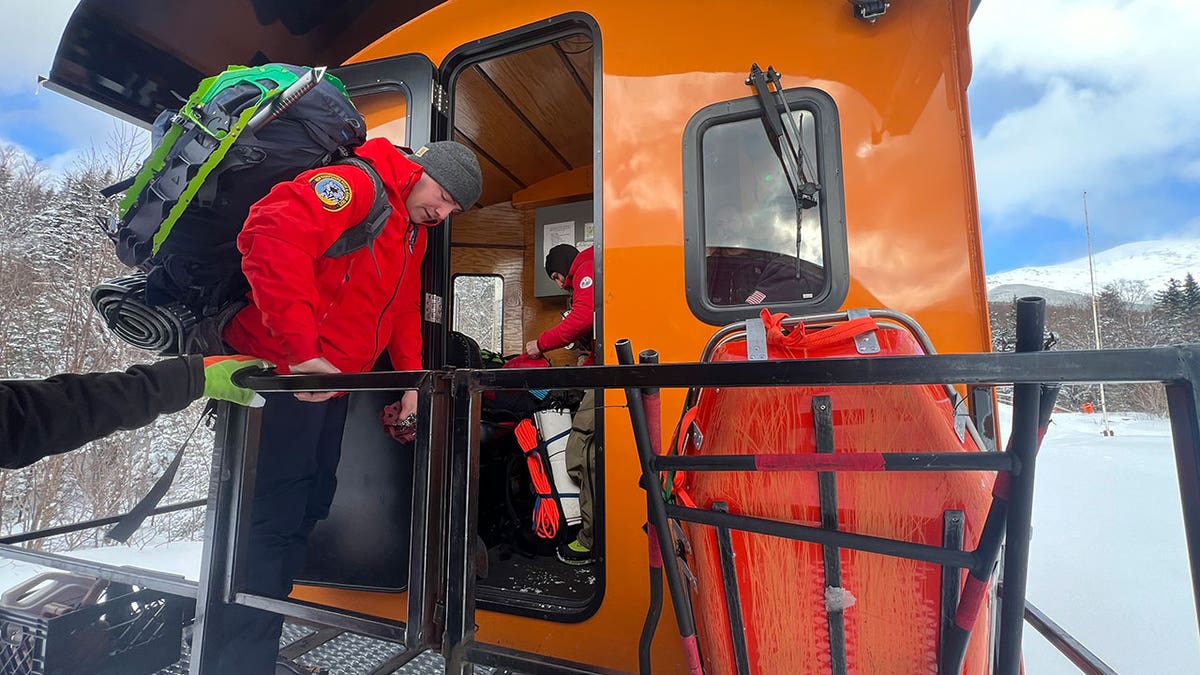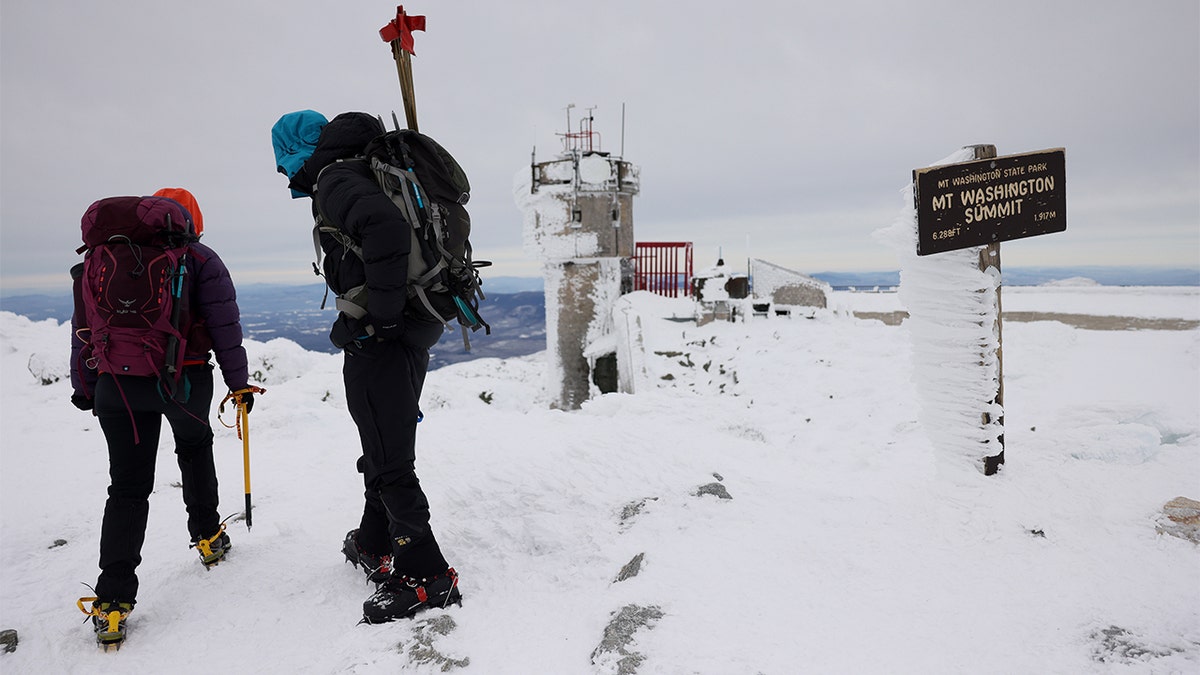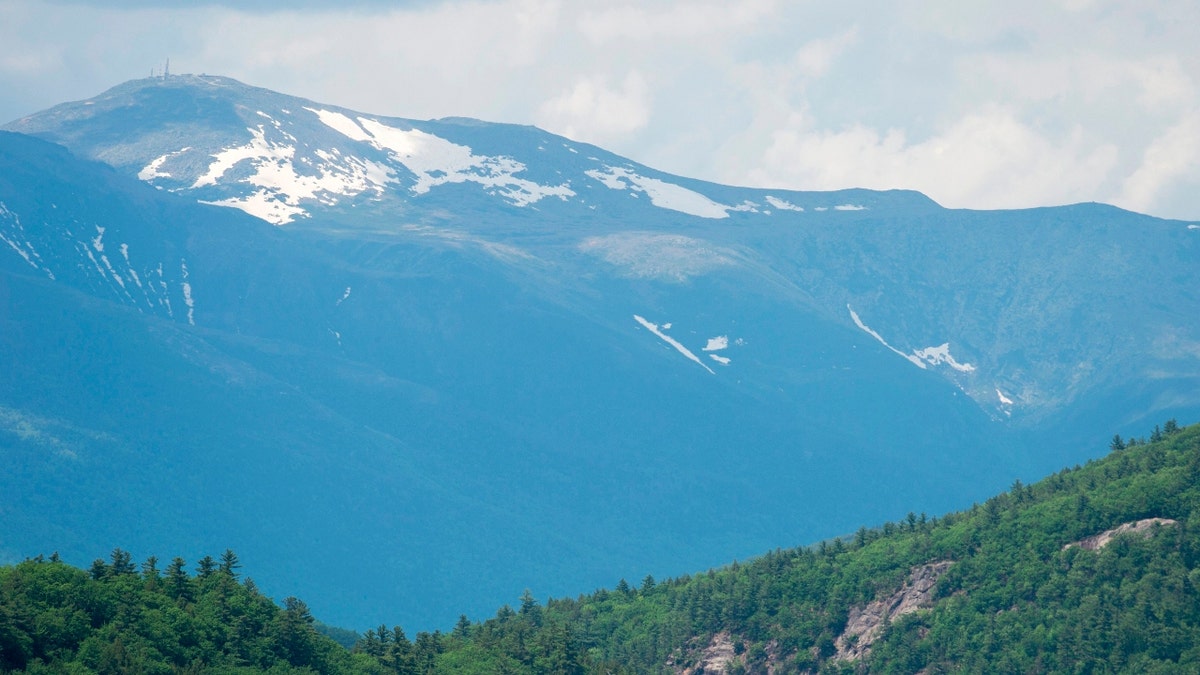Hiker rescued from Mount Washington says he made ‘poor decisions’ and ‘was underprepared’
Mount Washington Hiker Cole Matthes revealed what got him into the circumstances requiring a team of men to save him in an 11-hour rescue.
“I am extremely grateful to all 11 of the men who saved my life Saturday and am also extremely sorry that they had to risk their lives to save me,” Matthes told the Associated Press. “I certainly made poor decisions and was underprepared for this hike.”
Both he and the rescuers say that without help, he would have died within hours.
Matthes drifted away from the trail as temperatures plunged, and ferocious winds made it near impossible to see. He hit a patch of snow-covered ice and slid hundreds of feet down a ravine.
HIKER RESCUED FROM MOUNTAIN WITH 90-MPH WINDS, BITTER COLD ATOP MOUNT WASHINGTON
The 22-year-old from Portsmouth, New Hampshire, said in an online interview that he has plenty of hiking experience but not during harsh winter conditions. He set off in spiked snowshoes planning to complete the challenging 9-mile Ammonoosuc Ravine Trail loop, which has an elevation gain of 4,200 feet.
New Hampshire Fish and Game said that as conditions worsened, Matthes ignored advice from other hikers to turn back prior to his fall.
“While I did see a group of hikers turn around at the Lake of the Clouds Hut, I decided to continue with other hikers,” Matthes said. “I was not hiking alone at that point and the weather conditions had not reached their peak.”
Mattes tumbled a little before noon, banging himself up and twisting his ankle before he called 911.
SKIER TRIGGERS AVALANCHE ON MOUNT WASHINGTON, SUFFERS LIFE-THREATENING INJURY

Ryan Presby, who manages the Mount Washington Cog Railway, told the AP he took the train up three times with rescue crews. As winds hit 90 miles per hour and temperatures plunged, he worried the train’s diesel engine would gel and the train would seize. He told rescuers to jump out as quickly as possible when they reached their destination.
Levi Frye, a conservation officer with Fish and Game, was among the first group of three rescuers to jump off the train. He said it was immediately clear they needed crampons for the ice and fierce wind.
“We were fighting it the whole time. It was certainly capable of knocking you off your feet, especially with a heavy pack on,” Frye said. “The visibility was so bad on account of all the snow getting blown around.”
Rescuers used a system called leapfrogging, utilizing the trail’s marked rock cairns. One person would stay at the first cairn while another would try to locate the next cairn. The third person stood in the middle to keep in contact with both.

Staying safe meant finding a balance between not getting too cold and not sweating too much, because it was even more dangerous to have sweat freeze, Frye said.
By the time the team reached Matthes a little after 6 p.m., it was already dark.
“I was extremely relieved once the first team of rescuers arrived,” Matthes said. “Even with my shelter, I wouldn’t have lasted through the night in my condition.”
MISSING HIKER FOUND DEAD NEAR ARIZONA PEAK

Matthes’ boots were frozen solid, Frye said. The top priority was to strip him of his wet gear and get him into dry clothes. They gave him warm water and electrolytes and strapped his ankle as more rescuers arrived. By about 9:30 p.m., they felt he was stable and ready to leave. They got back to base a little before 11 p.m.
After being treated, Matthes said he declined the advice from rescuers to take an ambulance to the hospital because he thought it would be expensive. He drove himself there instead.
“I’m currently recovering from some frostbite on my toes,” Matthes said.
THE TREK TO THE TOP OF MOUNT WASHINGTON

New Hampshire Fish and Game said Matthes did not have proper gear or equipment, did not plan for the weather or make good decisions. In some previous cases, the agency has sought to recover rescue costs from hikers they believed to be negligent, but so far they have not decided what to do regarding Matthes.
Matthes said he was aware of the financial risk when he called 911.
“But I knew that if I hadn’t called for help, I wouldn’t have made it down,” Matthes said. “At the end of the day, I’m alive, and that’s all that I could ask for.”
The Associated Press contributed to this report.
Read the full article Here


